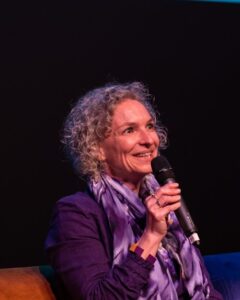African philosophy and food systems
African philosophy is highly relevant when thinking about and working on transformation towards more just and sustainable food systems. Likewise, it seems that food system research has not paid much attention to African philosophy so far. By collaborating with colleagues across the globe I aim to bring these fields together, which covers themes like agriculture, food system transformation, endogenous development, indigenous knowledge, epistemic diversity, and social and epistemic justice (see publications).
Being engaged in African philosophy with a mainly Western cultural and educational background – like in my case – requires self-reflection and the willingness to listen to and learn from other cultures. I therefore wish to follow late Professor Heinz Kimmerle, who engaged in intercultural dialogues between African and Western philosophies. Transformative intercultural dialogues can raise questions about one’s own culture and offer opportunities to learn from other cultures. This can lead to increased mutual understanding between Africa and the West, and may open up new ways of thinking.
Example: Reviving indigenous knowledge in Ghana
In October 2022, we organised a one-week training in Techiman, Ghana, together with the Centre for Indigenous Knowledge and Organisational Development (CIKOD): “Reviving Indigenous knowledge to enhance agrobiodiversity in Ghana’s agroecological food systems” The main aim of the training was to engage a range of actors in agroecological food systems in Ghana. Together with CIKOD we developed and organized a training program on agrobiodiversity and indigenous knowledge, in which about 25 people participated.
Our Research was one of WUR’s stories for the Biodiversity Summit COP15: “When talking about tackling the global biodiversity crisis, valuable indigenous knowledge is often downplayed or yields to a western perspective. At the COP15, it is crucial to take different worldviews and knowledge systems into account, in order for protection measures to be effective and supported. But what does it take to meaningfully ‘revive’ indigenous knowledge?”

